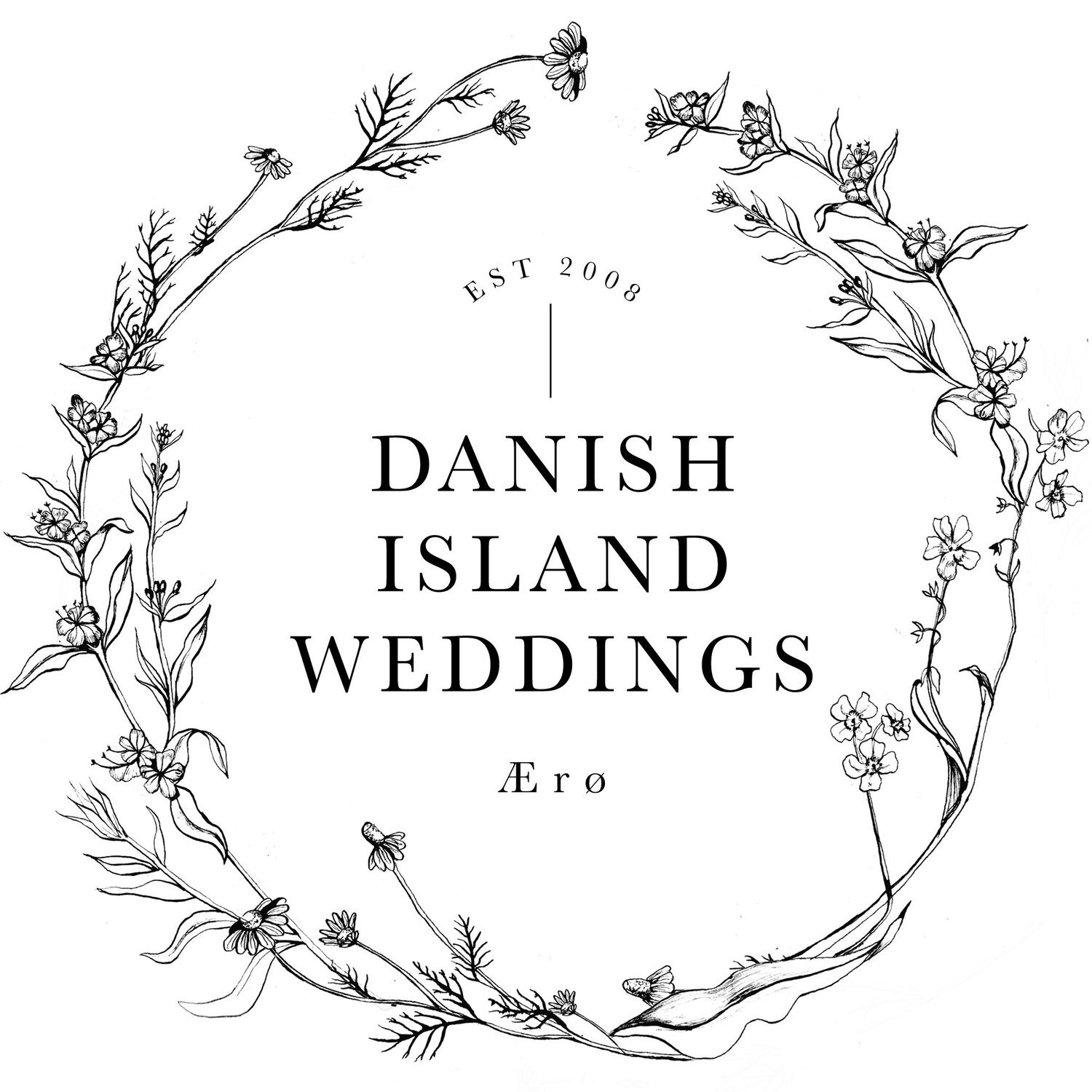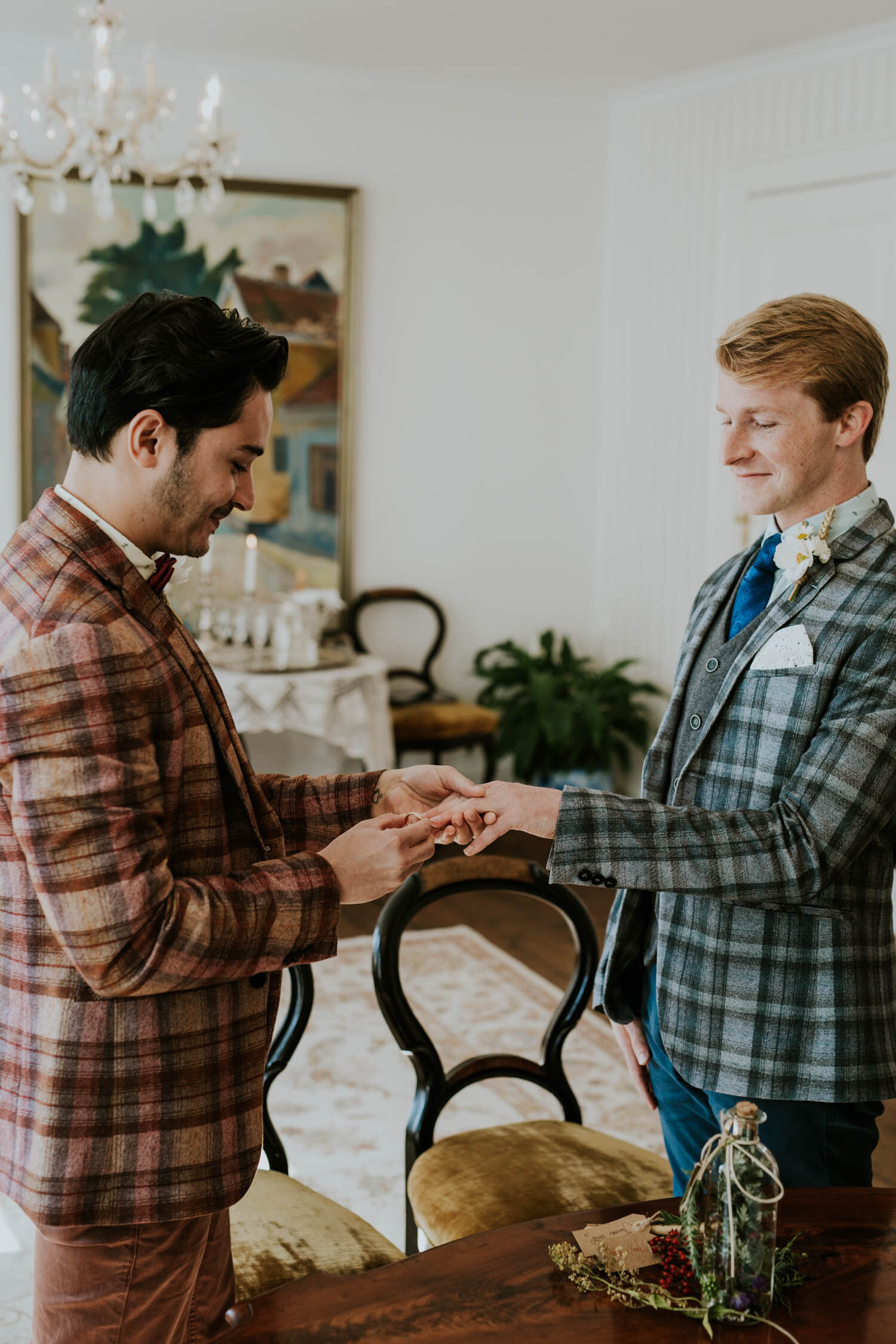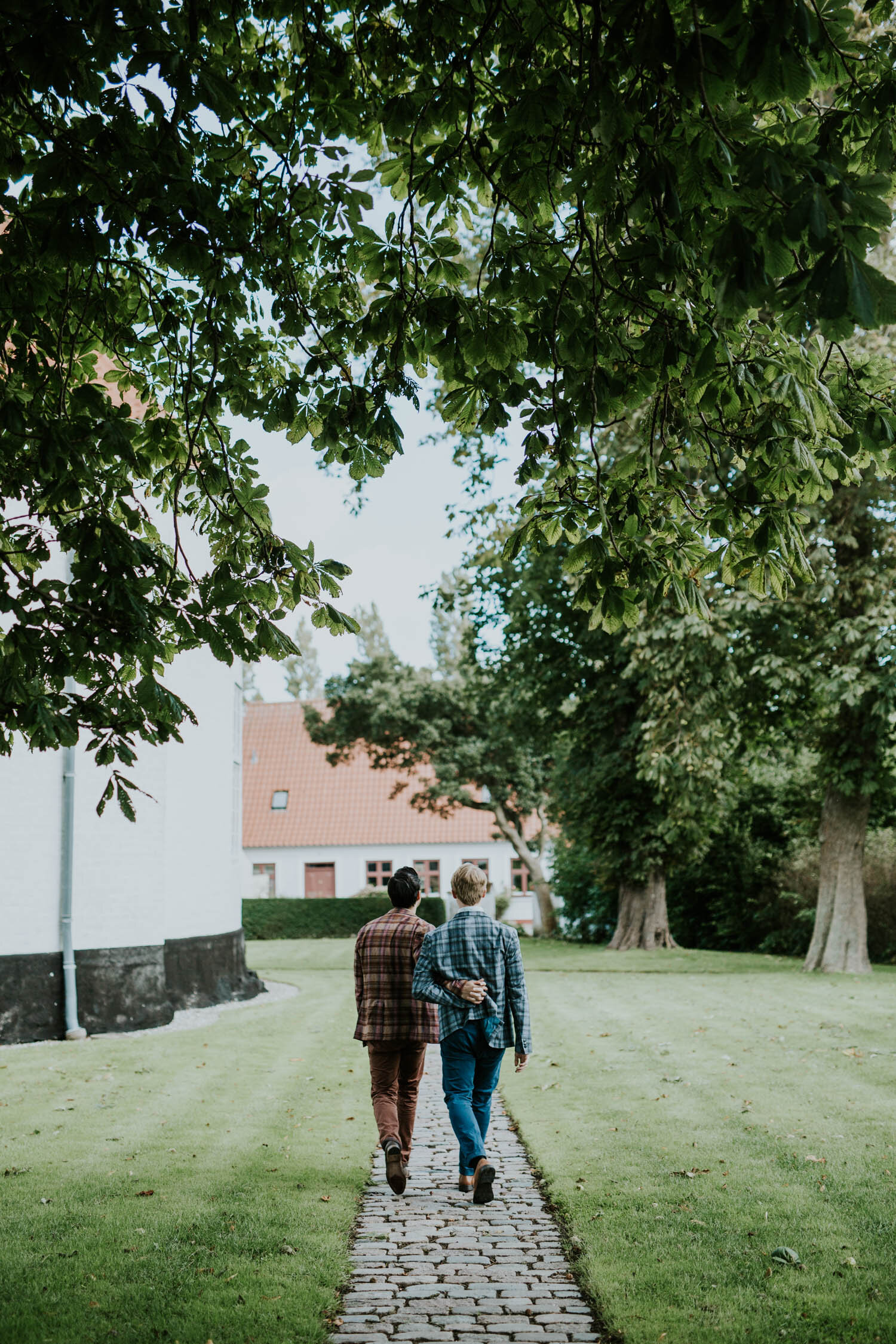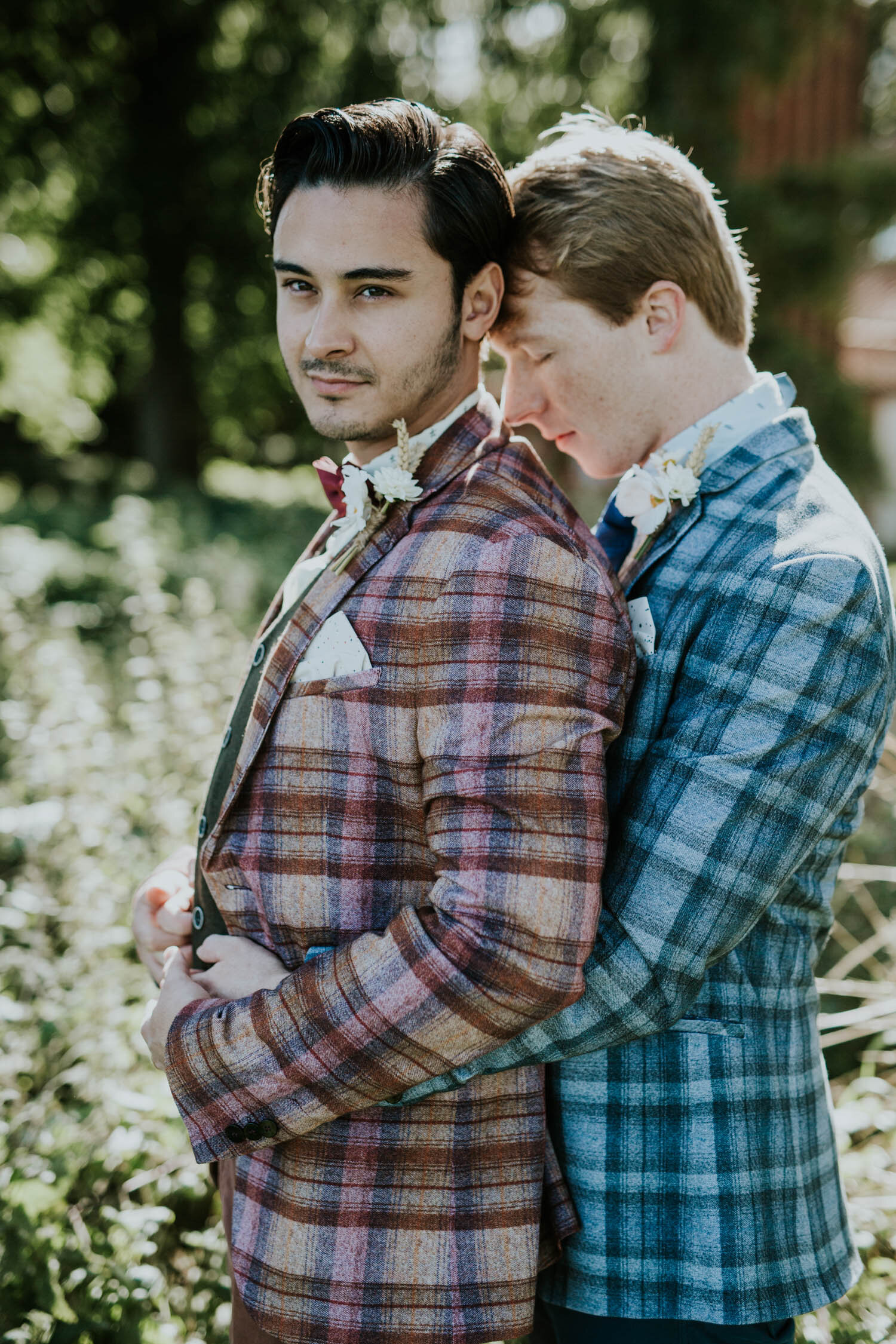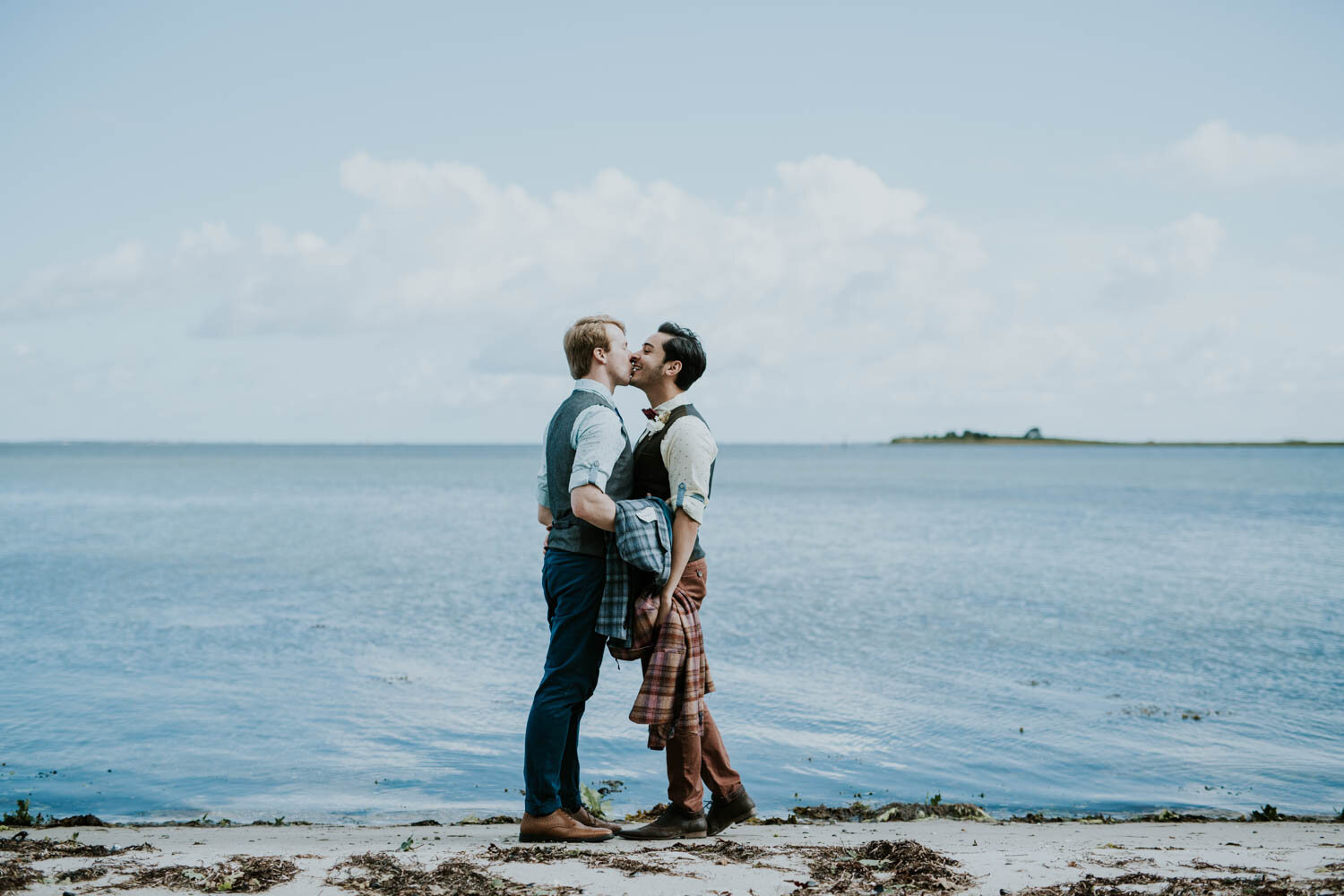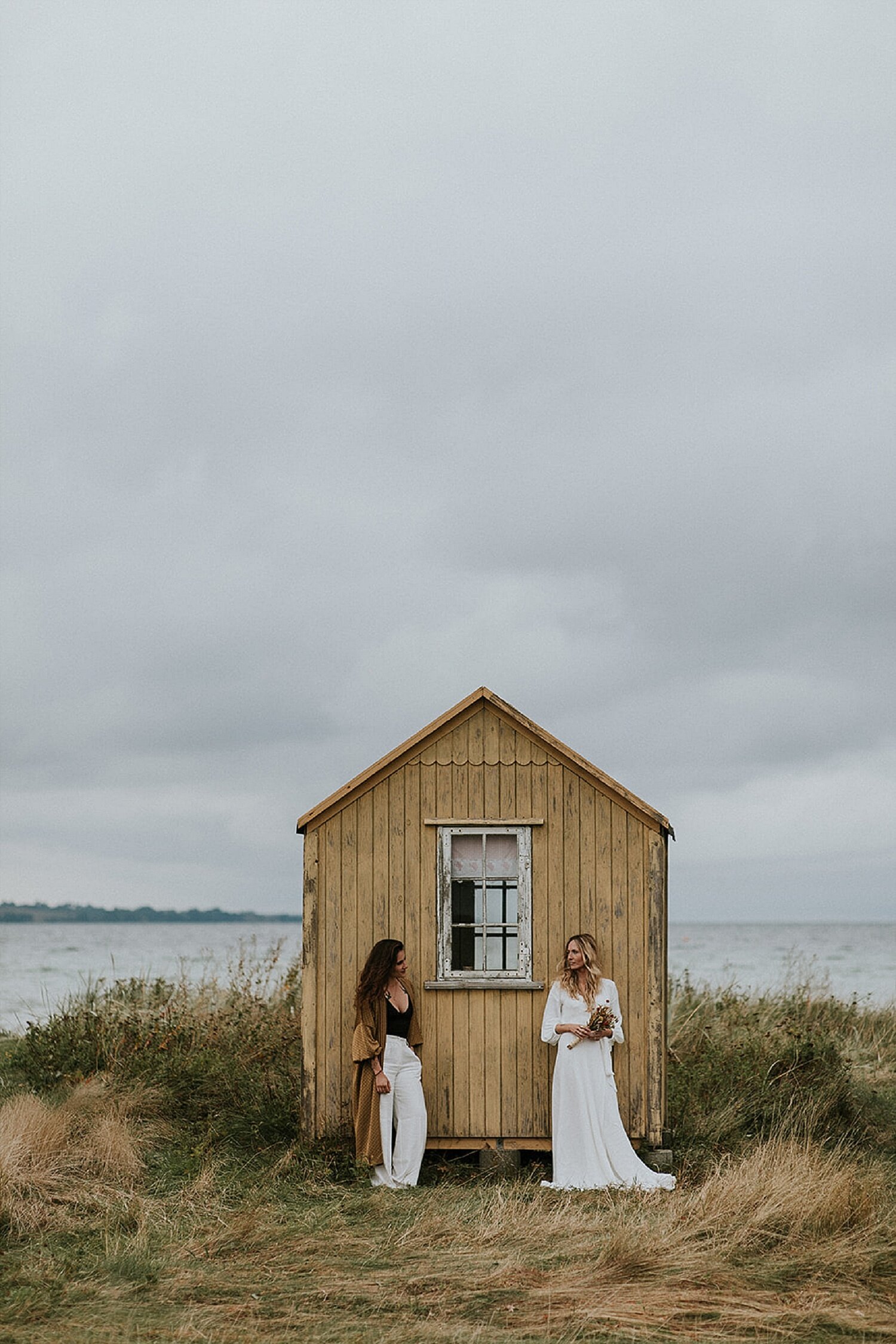Why Denmark?
Because Denmark is the easiest place in the world for wedding ceremonies for LGBTQ+ couples.
Because Ærø is the most romantic place in Denmark.
Because there is no discrimination at all here – a wedding day is a wedding day!
Why Work with Us?
Because we have more experience than anyone in looking after same-sex couples from all over the world.
Because we are specialists in dealing with difficult documentation.
Because we are right here on Ærø to help you in any way you need. Email us at info@gaymarriageindenmark.com
Stop press (24 January 2024)
The recent documentary by NDR (in German) has lovely scenes of Danish Island Weddings and Ærø, and features one of our same-sex couples from Germany.
The number of countries recognising LGBTQ marriages is steadily increasing, with Austria, Taiwan, N Ireland, Costa Rica and Ecuador recently added to the list. But you can still get married here, even if your home country will not recognise it.
Note too, that even in EU countries which do not recognise same sex marriage, like Poland, they are still obliged to honour the terms of the EU Directive on Freedom of movement, and grant residency rights to gay spouses (although in practice it could take a battle to make it happen).
Frequently Asked Questions
EVERYTHING YOU NEED TO KNOW ABOUT LGBTQ+ MARRIAGE IN DENMARK
…and see the main FAQ page for subjects which apply to all couples
Is gay marriage legal in Denmark? Is the marriage valid worldwide?
Yes, a gay marriage in Denmark is absolutely legal, and it is valid worldwide, although some countries still of course do not recognise same-sex marriage. Wikipedia has a helpful page http://en.wikipedia.org/wiki/Status_of_same-sex_marriage which is usually up to date.
And countries which recognise civil partnerships but not LGBT marriage allow you to register your Danish marriage as a partnership. But there are a number of countries where it is not only not recognised but actually punishable, so we try and make sure our couples know of any risks, and then try and be discrete if that helps in their particular situation.
If LGBT marriage is not legal where we live can we still get married with you?
Absolutely – in Denmark same sex or LGBTQ+ (or GLBTQ) marriage is legal and encouraged, wherever you are from. We have helped many LGBT couples marry even though they knew the wedding would not be recognised at home – they wanted to do it anyway because it was important to them personally, whatever the legal situation.
What about registering our marriage?
In general, as you would hope, those countries which have recognised same-sex marriages have been helpful with registering the marriage. One of our couple’s comments: “International legality is a very important question and an additional challenge for gay couples. I can only confirm that with us it worked quite well: in Switzerland the marriage has been registered as a civil partnership with an option to “upgrade” it to a marriage when the laws allow it; the US system was extremely welcoming and asked no big questions to register us as a married couple. The only problem was here in Korea, but we knew that was to be expected. The topic is still taboo here, but things are slowly changing as well and the recognition of foreign gay marriages is still an ongoing process”. We would be interested to hear of other couples’ experiences so we can pass on any good advice.
What about civil partnerships?
You cannot have a civil partnership in Denmark – but a Danish marriage can be registered in some countries as a civil partnership, if they do not recognise LGBTQ marriage. Please watch out for one oddity – you cannot “upgrade” your civil partnership to a marriage; you have to dissolve your civil partnership first.
Are there any particular legal issues for LGBTQ+ couples marrying in Denmark?
In general the legal requirements and the legal status of a LGBTQ+ marriage in Denmark are exactly the same as for a straight marriage. But previous civil partnerships are more often a factor for LGBTQ couples; oddly, even if the couple has been in a civil partnership with each other, the partnership has to be dissolved before they can then get married. We can give you more advice on this slightly surprising issue.
Is there any discrimination against LGBTQ+ couples in Denmark?
Maybe, but we have never, ever witnessed any. On the contrary, all our LGBTQ+ couples have commented on how friendly and welcoming they have found the people in Denmark generally and on our beautiful island in particular. We have a big gay community on the island and most shops and cafes make a point of showing rainbow stickers in their windows. On Ærø and in Denmark gay marriage is very normal and very accepted.
What is the ceremony like, and how long does it take?
You will stand in front of the registrar or mayor in our beautiful private wedding room (or at the beach or one of our other beautiful locations) while he/she conducts the ceremony, which is quite short and simple. You are required to say yes, and you may exchange rings if you would like to. If you want to you can add your own vows, readings, or music. Thereafter you both sign the register. After the witnesses and registrar have signed the final paperwork you are married!
Does getting married to an EU citizen give me automatic residency in Europe?
In general terms, yes it does, but be careful – this is a complicated issue. The 2004 EU Directive on freedom of movement established this principle, but the individual EU countries did not implement the Directive fully. In particular, most countries want to be sure that any marriage is genuine, that the couple will be living together, and that they can support themselves financially. For gay couples, surprisingly, even EU countries which do not recognise gay marriage (such as Poland) are obliged to recognise the spouse’s right to live and work in the EU – but you might face a battle to win that one in practice.
What about divorce, if my country does not recognise the marriage in the first place?
If things sadly don’t work out then usually couples should seek divorce in their country of residence. The location of the marriage is not usually relevant. But for same sex couples living somewhere that does not recognise the marriage, the Danes make a sensible exception, and they can divorce here in Denmark.
